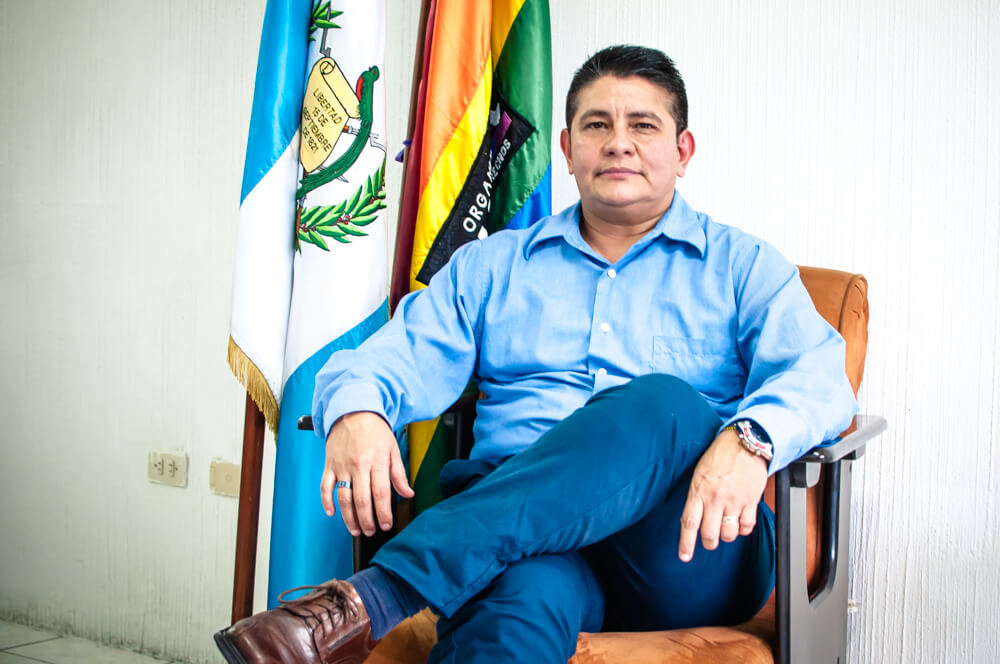In a conference room in downtown Guatemala City, Alex Castillo got up in front of a group of employees from the federal prosecutor’s office and explained what it meant to be transgender in a country without legal protections for people like him. He clicked next on his PowerPoint presentation, and an image of his own government-issued identification showed up with a glaring discrepancy: An “F” where there should have been an “M.”
The room was a safe space for the government employees, and Castillo made sure everyone understood that this was a place of learning and there were no wrong questions. Castillo and his colleagues at Asociación Lambda have trained more than 1000 state workers and police officers across the country. He uses his own life and body to teach and train these students. In many cases, this class is the first time these government employees will receive any kind of gender and sexuality education, especially about transgender issues.
Castillo’s students work for the state, and in many cases are the frontline of the government, interpreting laws in real time. They are police stopping people in the street, deciding how to respond to discrimination cases. They are the officers deciding whether to jail a transgender person in the female or male section of a prison despite a lack of regulations for that situation. They are the caseworkers receiving complaints of violence from transgender teens without formal rules for how to proceed when LGBTQ people have no protections.
Guatemala is a dangerous country for the transgender community, and LGBTQ lives are not protected by law. According to a study by HIVos, 71 percent of transgender women in Guatemala report experiencing discrimination, 60 percent have reported experiencing physical abuse, and 61 percent earn less than minimum wage. Another study by Red Lactrans noted that as many as 70 percent of transgender people say they were kicked out of their family homes.
Subscribe to get a twice-weekly dose of queer news, updates, and insights from the INTO team.
in Your Inbox
Right now, a proposed bill is making its way through Congress that would allow transgender people to change the sex on their identity cards. But there’s also a proposed bill that would make it illegal for any organization — public or private — to teach sex education to minors. The work that Lambda does across the country is important and necessary, but trans Guatemalans remain vulnerable to violence, discrimination, and the violation of their basic rights.
One young trans man who participated in the project told us his family had brought a priest to exorcise him, and several other young teenage trans men were kicked out of school because of their gender identity. Many of the men we spoke to told us they had lost connections to their families and have had a difficult time finding work because their IDs out them on every job application, and they have no protection against discrimination. So many trans people we met want to pass and live a life free of harassment, but without the ability to change their sex on their identification, living stealth isn’t an option.
We are incredibly grateful to the Guatemalan trans masculine community that received us and told us their stories. It is an act of bravery whether you are out in your community or not. We cannot profess our appreciation enough.



Go to www.transmasculinidad.com for the full gallery and updates on the project. You can also find us on Instagram or on Facebook.
This story was reported from Guatemala on a fellowship from the International Reporting Project (IRP)














